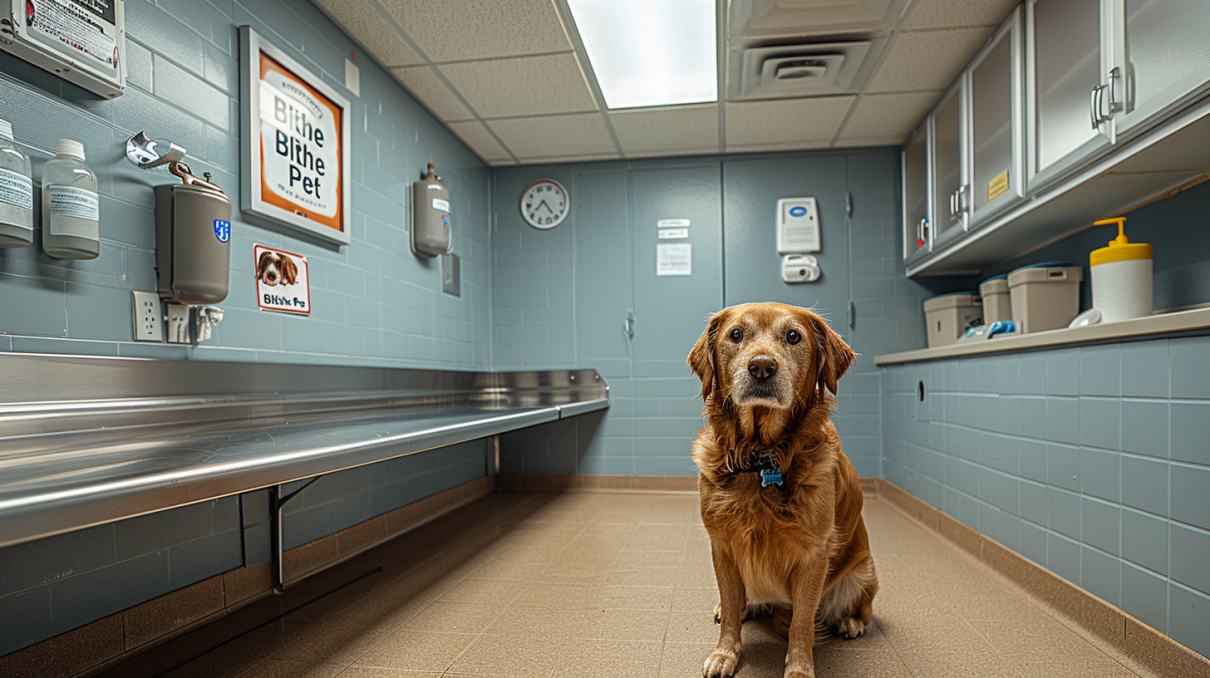Find free pet clinics near me with our comprehensive guide. Discover 7 accessible locations, eligibility requirements, and expert tips for affordable pet care today.
Table of Contents
Did you know that nearly 70% of pet owners have delayed or avoided veterinary care due to cost concerns? This startling statistic from the American Pet Products Association reveals a harsh reality: millions of beloved pets aren’t receiving the medical attention they desperately need. If you’re searching for “free pet clinics near me,” you’re not alone in this struggle. The rising costs of veterinary care have left many pet parents feeling overwhelmed and helpless when their furry family members need help.
Finding free pet clinics near me has become a critical lifeline for pet owners across the United States and Europe. These compassionate facilities bridge the gap between love for our pets and financial constraints, ensuring that economic hardship doesn’t mean compromising on our pets’ health and wellbeing. Whether you’re facing an unexpected emergency, routine care needs, or simply trying to provide preventive healthcare on a tight budget, understanding your options for free veterinary services can make all the difference.
When I first adopted my rescue dog Luna from a shelter in Colorado, I quickly realized that the monthly costs of quality pet care were much higher than anticipated. Like many new pet owners, I found myself frantically searching for affordable veterinary options that wouldn’t break the bank while still providing excellent care for my four-legged companion.
Understanding Free Pet Clinics: What You Need to Know

Free pet clinics operate as non-profit organizations, mobile units, or community-sponsored events designed to provide essential veterinary services at no cost to pet owners who meet specific eligibility criteria. These clinics typically focus on preventive care, basic treatments, and emergency services for families experiencing financial hardship.
Types of Free Pet Clinic Services
Most free pet clinics near me offer a comprehensive range of basic veterinary services including:
Preventive Care Services:
- Annual wellness examinations and health assessments
- Core vaccinations for dogs and cats (rabies, DHPP, FVRCP)
- Parasite prevention and deworming treatments
- Basic dental cleanings and oral health evaluations
- Nutritional counseling and weight management guidance
Emergency and Treatment Services:
- Minor wound care and basic injury treatment
- Skin condition diagnosis and treatment
- Eye and ear infection management
- Pain management for chronic conditions
- Basic diagnostic services including blood work
Spay and Neuter Programs: Many free pet clinics prioritize spay and neuter services to help control pet overpopulation while providing this essential service to families who cannot afford the typical $200-800 cost.
Types of Free Pet Clinic Services
| Service Category | Service Type | Average Cost Savings | Availability | Requirements |
|---|---|---|---|---|
| Preventive Care | Annual Wellness Exam | $50-120 | Year-round | Income verification |
| Preventive Care | Core Vaccinations (Dogs) | $75-150 | Most clinics | Proof of residence |
| Preventive Care | Core Vaccinations (Cats) | $65-130 | Most clinics | Pet ownership proof |
| Preventive Care | Parasite Prevention | $30-80 | Seasonal/Year-round | Basic eligibility |
| Emergency Care | Minor Wound Treatment | $100-300 | Limited availability | Urgent need verification |
| Emergency Care | Skin Condition Treatment | $80-200 | Most clinics | Medical history helpful |
| Emergency Care | Eye/Ear Infections | $75-180 | Most clinics | Same-day availability |
| Surgical Services | Spay Procedure (Cats) | $200-400 | High demand | Advance scheduling |
| Surgical Services | Neuter Procedure (Dogs) | $250-500 | High demand | Age/weight requirements |
| Diagnostic | Basic Blood Work | $100-250 | Limited locations | Fasting requirements |
| Dental Care | Basic Cleaning | $300-800 | Rare availability | Pre-exam required |
| Specialty | Behavioral Consultation | $150-300 | Very limited | Referral often needed |
7 Types of Free Pet Clinics You Can Find Near You
1. Community-Based Non-Profit Clinics
These permanent facilities operate year-round in communities with high need for affordable pet care. Organizations like the ASPCA and Humane Society often sponsor these clinics, which typically require proof of financial hardship and serve specific geographic areas.
Eligibility Requirements:
- Proof of government assistance (SNAP, WIC, Medicaid)
- Income verification below federal poverty guidelines
- Residency within specific zip codes or counties
2. Mobile Veterinary Units
Mobile free pet clinics bring services directly to underserved communities, often visiting the same locations on rotating schedules. These units are particularly valuable in rural areas where access to veterinary care is limited.
Advantages:
- No transportation barriers for pet owners
- Serves areas without permanent veterinary facilities
- Often provides services in familiar community settings like schools or community centers
3. Veterinary School Training Clinics
Accredited veterinary schools often operate low-cost or free clinics where students gain hands-on experience under professional supervision. These clinics provide excellent care while serving the community’s needs.
Notable Programs:
- University teaching hospitals
- Veterinary technology programs
- Continuing education partnerships with local veterinarians
4. Faith-Based and Community Organization Clinics
Many religious organizations and community groups sponsor periodic free pet clinics as part of their community service missions. These events often occur quarterly or annually and may focus on specific services like vaccinations or spay/neuter procedures.
5. Corporate-Sponsored Health Events
Pet supply retailers, pharmaceutical companies, and veterinary corporations occasionally sponsor free pet health events in partnership with local veterinarians. These events often emphasize preventive care and pet health education.
6. Government-Funded Public Health Clinics
Some municipalities operate free pet clinics as part of public health initiatives, recognizing the connection between pet health and community wellbeing. These programs often focus on rabies prevention and population control.
7. Emergency Relief and Disaster Response Clinics
Following natural disasters or community emergencies, temporary free pet clinics provide immediate care for animals affected by the crisis. Organizations like the Red Cross and local emergency management agencies coordinate these services.
Free Pet Clinic Eligibility Requirements
| Clinic Type | Income Requirement | Documentation Needed | Geographic Limits | Pet Restrictions | Wait Time |
|---|---|---|---|---|---|
| Community Non-Profit | Below 200% poverty line | Pay stubs, benefit letters | County/zip code specific | Current vaccinations | 2-4 weeks |
| Mobile Units | Below 150% poverty line | Government assistance proof | Route-based service area | Transportable pets only | Same day |
| Veterinary Schools | Sliding scale fees | Student ID or income proof | Within 50 miles typically | All species accepted | 1-3 weeks |
| Faith-Based Clinics | Varies by organization | Basic income verification | Local congregation priority | Dogs and cats primarily | Event-based |
| Corporate Sponsored | No income requirement | Proof of residence only | Event location radius | Species varies by event | Walk-in basis |
| Government Funded | Medicaid/SNAP recipients | Government assistance card | Municipal boundaries | Rabies vaccination focus | 1-2 weeks |
| Emergency Relief | Disaster-affected residents | FEMA registration | Disaster-declared areas | All animals | Immediate |
How to Find Free Pet Clinics Near Me: A Step-by-Step Guide
Step 1: Online Research and Database Searches
Start your search using these reliable online resources:
National Databases:
- ASPCA’s database of low-cost veterinary care
- Humane Society’s national clinic locator
- PetSmart Charities clinic directory
- Best Friends Animal Society resource center
Search Strategy: Use specific search terms like free pet clinics near me combined with your city or zip code. Include terms like low-cost veterinary care, sliding scale pet clinics, and “emergency pet assistance.
Step 2: Contact Local Animal Shelters and Rescue Organizations
Animal shelters often maintain comprehensive lists of affordable veterinary resources in their communities. Many also host their own periodic free clinic events or partner with mobile units.
Questions to Ask:
- Do you host free veterinary clinics?
- Can you recommend free pet clinics near me?
- Are there upcoming community pet health events?
- Do you offer assistance programs for veterinary care?
Step 3: Reach Out to Veterinary Schools and Colleges
Contact veterinary programs within a reasonable driving distance to inquire about their community clinic services. Many programs welcome community participation and offer services at significantly reduced costs.
Step 4: Check with Local Government and Health Departments
Municipal health departments sometimes coordinate or sponsor free pet clinic events, particularly for rabies vaccination drives and spay/neuter programs.
Step 5: Connect with Faith-Based and Community Organizations
Churches, community centers, and civic organizations often know about or sponsor local pet health initiatives. Don’t hesitate to ask about upcoming events or resources.
Frequently Asked Questions About Free Pet Clinics
Eligibility Requirements: What You Need to Qualify
Understanding eligibility requirements helps you prepare for your visit to free pet clinics near me and ensures you have the necessary documentation.
Common Eligibility Criteria
Financial Qualifications:
- Household income below 200% of federal poverty guidelines
- Receipt of government assistance programs (SNAP, TANF, Medicaid, WIC)
- Unemployment or disability status
- Senior citizen or veteran status (some programs offer special considerations)
Geographic Requirements:
- Residency within specific zip codes or county boundaries
- Proof of local address through utility bills or lease agreements
- Some programs prioritize residents of underserved rural communities
Pet-Specific Requirements:
- Current pet vaccinations (for non-vaccination services)
- Proof of pet ownership or adoption paperwork
- Pets must be in transportable condition for safety reasons
Required Documentation
Prepare these documents before visiting free pet clinics:
- Government-issued photo identification
- Proof of income (pay stubs, benefit letters, tax returns)
- Proof of residence (utility bills, lease agreement)
- Pet’s medical records (if available)
- Proof of government assistance enrollment
What to Expect During Your Free Clinic Visit
Pre-Visit Preparation
Health Assessment: Before visiting free pet clinics near me, document your pet’s symptoms, behavioral changes, and any concerns you want to address. This preparation helps maximize your appointment time and ensures nothing important is overlooked.
Transportation Planning: Ensure you have secure, appropriate transportation for your pet. Bring carriers for cats and small dogs, and have leashes and collars ready for larger animals.
During the Appointment
Wait Times: Free clinics often experience high demand, so prepare for potentially longer wait times than typical veterinary offices. Bring water, snacks, and entertainment for both you and your pet.
Service Limitations: Understand that free clinics may have limitations on services provided during a single visit. Complex cases might require referrals to full-service veterinary hospitals.
Follow-Up Care: Ask about follow-up care options and whether the clinic provides ongoing services or can recommend affordable continuing care providers.
Expert Tips for Maximizing Free Pet Clinic Services
Tip 1: Schedule Preventive Care Strategically
Don’t wait for emergencies to seek free veterinary care. Regular preventive visits to free pet clinics near me can help identify health issues before they become expensive emergencies.
Tip 2: Build Relationships with Clinic Staff
Developing positive relationships with clinic volunteers and staff can provide valuable insights into upcoming services, special programs, and additional resources.
Tip 3: Maintain Detailed Health Records
Keep comprehensive records of all veterinary visits, treatments, and vaccinations. This documentation helps ensure continuity of care across different providers and prevents duplicate services.
Tip 4: Prepare Questions in Advance
Create a written list of questions and concerns before your visit. This preparation ensures you address all important topics during your limited appointment time.
Tip 5: Follow Aftercare Instructions Carefully
Compliance with aftercare instructions is crucial for your pet’s recovery and helps build trust with clinic providers for future services.
Tip 6: Volunteer When Possible
Many free pet clinics rely on volunteers for non-medical support. Volunteering can provide insights into clinic operations and help you stay informed about upcoming services.
Tip 7: Network with Other Pet Owners
Connect with other families using free clinic services to share information about resources, experiences, and recommendations.
Tip 8: Plan for Multiple Visits
Some treatments may require follow-up visits. Plan your schedule and transportation accordingly to ensure your pet receives complete care.
Common Mistakes to Avoid When Seeking Free Pet Care
Mistake 1: Waiting Until Emergency Situations
Many pet owners only seek free clinic services during medical emergencies when treatment options are limited and more expensive. Regular preventive care through free pet clinics near me can prevent many emergency situations.
Mistake 2: Not Bringing Required Documentation
Arriving without proper identification, proof of income, or residency verification can result in appointment delays or denial of services.
Mistake 3: Expecting Full-Service Hospital Capabilities
Free clinics operate with limited resources and may not provide comprehensive diagnostic services or complex treatments available at full-service veterinary hospitals.
Mistake 4: Ignoring Aftercare Instructions
Failing to follow post-treatment care instructions can compromise your pet’s recovery and may disqualify you from future services at some clinics.
Mistake 5: Not Researching Clinic Specialties
Some free clinics specialize in specific services like spay/neuter procedures or vaccinations. Research clinic focuses to ensure they provide the services your pet needs.
Warning Signs: When to Seek Immediate Professional Care
While free pet clinics provide valuable services, certain situations require immediate emergency veterinary attention, even if it means incurring costs:
Life-Threatening Emergencies:
- Difficulty breathing or choking
- Severe bleeding that won’t stop
- Loss of consciousness or collapse
- Suspected poisoning or toxic ingestion
- Severe trauma from accidents
- Prolonged seizures
- Signs of bloat in large dogs (distended abdomen, unproductive vomiting)
Urgent Care Situations:
- High fever (over 103°F)
- Inability to urinate or defecate
- Severe pain or distress
- Eye injuries or sudden vision loss
- Persistent vomiting or diarrhea lasting more than 24 hours
Don’t delay emergency care hoping to wait for a free clinic appointment. Many emergency hospitals offer payment plans or can direct you to financial assistance programs.
Financial Assistance Programs Beyond Free Clinics
National Pet Assistance Organizations
The Pet Fund: Provides financial assistance for emergency and non-basic veterinary care when pet owners can demonstrate financial hardship.
RedRover Relief: Offers emergency financial assistance for pet owners experiencing domestic violence, natural disasters, or other emergencies.
Brown Dog Foundation: Provides funding for emergency and specialty veterinary care for pets whose owners cannot afford treatment.
Local and Regional Programs
Many communities have local pet assistance funds established by veterinary hospitals, animal welfare organizations, or community foundations. Contact local animal shelters for information about regional programs.
Veterinary Hospital Payment Plans
Many veterinary hospitals offer payment plans or financing options through companies like CareCredit or VetBilling. While not free, these programs can make necessary care more manageable financially.
Building Long-Term Pet Care Strategies on a Budget
Preventive Care Investment
Investing in regular preventive care through free pet clinics near me ultimately saves money by preventing expensive emergency treatments and chronic health conditions.
Pet Insurance Considerations
While insurance requires monthly premiums, policies can significantly reduce costs for unexpected emergencies and illnesses. Some low-cost options are available for budget-conscious pet owners.
Home Health Monitoring
Learn to perform basic health assessments at home, including checking vital signs, monitoring weight, and recognizing early signs of common health issues.
Nutrition and Exercise Planning
Proper nutrition and regular exercise prevent many health problems. Work with free clinic veterinarians to develop appropriate diet and exercise plans for your pet’s needs.
Myth-Busting: Common Misconceptions About Free Pet Clinics
Myth 1: Free Clinics Provide Inferior Care
Reality: Free pet clinics near me often employ licensed veterinarians and maintain the same medical standards as private practices. Many are staffed by veterinary school faculty and experienced professionals donating their time.
Myth 2: Only “Desperate” People Use Free Clinics
Reality: Responsible pet owners from all backgrounds use free clinic services to provide preventive care and maintain their pets’ health within their financial means.
Myth 3: Free Clinics Only Offer Basic Services
Reality: While service scope varies, many free clinics provide comprehensive care including diagnostics, surgical procedures, and specialized treatments.
Special Considerations for Different Pet Types
Dogs and Cats
Most free pet clinics focus primarily on dogs and cats, offering comprehensive services for these common companion animals. Services typically include routine wellness care, vaccinations, spay/neuter procedures, and basic medical treatments.
Exotic Pets and Small Animals
Finding free care for rabbits, birds, reptiles, and other exotic pets can be more challenging. Contact veterinary schools with exotic animal programs or specialized exotic pet organizations for resources.
Large Animals and Livestock
Rural communities may have access to large animal veterinary programs through agricultural extension services or veterinary schools with livestock programs.
Creating a Pet Emergency Fund
Even when utilizing free pet clinics near me, having an emergency fund helps cover transportation costs, specialized treatments, or emergency care when free services aren’t immediately available.
Emergency Fund Strategies
Start Small: Begin with a goal of $100-200 for basic emergency expenses, then gradually build toward $500-1000.
Automatic Savings: Set up automatic transfers of small amounts ($10-25) into a dedicated pet emergency account.
Fundraising: Consider crowdfunding platforms for significant medical expenses, particularly for well-documented cases with clear treatment plans.
For more expert pet care tips and product recommendations, visit BlithePet.com your trusted source for pet wellness.
Conclusion
Finding free pet clinics near me doesn’t have to be an overwhelming challenge. With proper research, preparation, and understanding of available resources, you can provide your beloved companion with quality veterinary care regardless of your financial situation. Remember that these services exist because communities recognize the vital importance of the human-animal bond and the responsibility we share in caring for vulnerable pets.
The key to success lies in being proactive rather than reactive. Start building relationships with free clinic providers before you need emergency services, maintain your pet’s health through regular preventive care, and always have a backup plan for true emergencies. Quality pet care is achievable on any budget when you know where to look and how to access available resources.
Whether you’re a new pet owner learning to navigate veterinary costs or an experienced pet parent facing unexpected financial challenges, free pet clinics provide a valuable safety net that ensures love for our pets doesn’t have to be limited by economic circumstances.
Have a similar experience with your pet? Share it in the comments below! Don’t forget to check out our other helpful guides at BlithePet.com.







